The role of fleet manager can encompass many facades. Mobility, facilities, insurance, transport, travel, logistics: increasingly the job title is fleet and “insert other responsibility here” manager.
Such is the case with Debbie Floyde, the 2022 inductee into the Fleet Hall of Fame. Group fleet manager at Fleet News parent company Bauer Media for the past 25 years, Floyde took on responsibility for commercial insurance procurement and risk management in 2008 and added facilities and group travel to the mix six years ago.
It was already a diverse fleet role, incorporating conventional company vehicles, outside broadcast trucks for radio and street team cars, plus the press cars, vans and motorcycles used by journalists for evaluation.
Now, as group fleet, risk and facilities manager, she says her expanding curriculum vitae ought to include another skill: “expert ball juggler”.
“There are never two days the same – there aren’t even two hours the same.”
As if that wasn’t enough to fill her days, she is also a director at the Association of Fleet Professionals (AFP), an organisation with which she has been closely involved for the past two decades.
So how does she juggle so many responsibilities?
The role of fleet manager can encompass many facades. Mobility, facilities, insurance, transport, travel, logistics: increasingly the job title is fleet and “insert other responsibility here” manager.
Such is the case with Debbie Floyde, the 2022 inductee into the Fleet Hall of Fame. Group fleet manager at Fleet News parent company Bauer Media for the past 25 years, Floyde took on responsibility for commercial insurance procurement and risk management in 2008 and added facilities and group travel to the mix six years ago.
It was already a diverse fleet role, incorporating conventional company vehicles, outside broadcast trucks for radio and street team cars, plus the press cars, vans and motorcycles used by journalists for evaluation.
Now, as group fleet, risk and facilities manager, she says her expanding curriculum vitae ought to include another skill: “expert ball juggler”.
“There are never two days the same – there aren’t even two hours the same.”
As if that wasn’t enough to fill her days, she is also a director at the Association of Fleet Professionals (AFP), an organisation with which she has been closely involved for the past two decades.
So how does she juggle so many responsibilities?
“You have to have a good team and be able to delegate,” Floyde says, pointing to the support from long-time fleet co-ordinator Sarah Sharples, promoted a year ago to head of health and safety and risk. She also recruited a fleet and facilities assistant, Tom Baldry, in February.
Floyde adds: “I like to keep my finger on the pulse, but you can’t do everything yourself. I’ve always liked the detail, but I’ve had to let that go a little bit.
"Now it’s about touchpoints and exceptions, keeping on top of performance, accidents and driver communications.”
Under the microscope
Her team now takes on the responsibility for keeping the fleet and its actions under the microscope. This includes going through car-by-car to check where the vehicles are, where they are going and asking questions such as: Is that pool car required? Can it be reallocated? Why is that car over-lease? Is there one on order? Is the business being charged?
“We need to know all of this straight away because it affects performance and also the billing which goes out to the cost centres,” Floyde says. “And it pays off – just recently we identified a car we owned which had not moved for eight months; it should’ve been sold.
“You can’t rely on the leasing company knowing all the detail about your fleet; you have to do it yourself.”
Floyde’s route into fleet was, like many, not a predetermined career choice. She joined pre-Bauer Emap (East Midlands Allied Press) as a petty cash administrator working four hours a day, giving fleet little more than a cursory glance until adding its admin duties to her remit when she became a full-time employee.
Fleet was, at that time, “a list of cars on a spreadsheet that was managed by different parts of the business with no overall person in charge”, she says.
Efficient and effective
Showing an early level of boldness and mettle that would epitomise her career, Floyde suggested to senior management that it could be run more efficiently and effectively by centralising under one person – her. To her surprise, they agreed, and she became the company’s first group fleet manager.
“Although I had been in admin, I had previously worked in a security role which involved funding, so I had some basic knowledge,” Floyde says. “I had already joined ACFO (the predecessor to AFP) by then for the best practice support so that also gave me the insight and confidence to be able to propose the change.”
Efficiencies were accomplished as long-standing procedures were challenged and changed. New suppliers were brought in – including funding partner Zenith in 2006 – and, for the first time, all business units achieved parity group-wide.
At that point, the fleet totalled around 500 cars, but it was about to get a whole lot bigger following Emap’s acquisition by German publishing giant Bauer in 2008.
The deal merged magazine publishing with Bauer’s expanding radio empire and swelled the UK fleet to a peak of almost 1,200.
“There was a lot of pool cars in that number which weren’t being utilised and there were also redundancies, so we were able to quickly chip away at the size of the fleet,” Floyde says.
“We always reallocate; I never send any cars back. You have to have complete control over your fleet to know where cars can go – as well as a good memory!”
This hands-on philosophy, with supplier management and daily analysis of fleet data, has been central to Floyde’s success.
By 2012, she had halved the fleet to 600, resolutely working within the lifecycle of each car.
Further changes to the business working patterns, including new Covid-driven hybrid working which today sees many staff typically working from home two or three days per week, have further reduced the fleet to 326 cars. Most sit within the radio division.
The global supply shortages have meant that Floyde’s heavy emphasis on reallocation – particularly with many of the radio cars on a legacy funding policy of outright purchase – has resulted in an ageing fleet, with a fair proportion of cars tipping six years.
“Some of them are quite old, but they don’t cost anything in funding, so it’s just the maintenance and insurance,” she says.
“And this is not too problematic; we generally have no major issues mainly because our mileage is very low.”
Floyde takes the risk on mileage although the low distances mean there is little danger of exceeding the thresholds. She also has a profit share agreement with Zenith on residual values.
“On average, we get back £100,000-£120,000 per year from our RV profit share, maintenance and tyre rebates,” she says.
“We do it annually because it would be too much admin to apply at the time.”
Bold changes
Floyde’s quarter-century career in fleet has taught her many things, not least to be bold when to comes to change.
You can’t, she says, be afraid to suggest something different or to innovate. Internal stakeholder relationships are important to nurture; fleet shouldn’t operate in a silo.
“Keep talking to the business – don’t be happy with them leaving you alone,” she says. “Fleet can be a profit centre, not just a cost, and you are the expert within the business.”
The position of fleet manager may be shifting rapidly, with an inherent risk of dilution by adding so many additional components, but Floyde strongly believes there is still a need for a fleet manager, especially for supplier management, managing internal expectations and delivering a viable proposition at the lowest cost possible, while constantly seeking out new initiatives.
“It’s always about adding value to the business - delivering more for less,” she says.
“You have to stay abreast of all the market developments and that’s where Fleet News helps.
“I’m fortunate to have Fleet News within the business – if it wasn’t there, God help the fleet managers of the future!”
Floyde on...
AFP and lifelong learning:
I joined (AFP predecessor) ACFO early on and it was probably the best thing I ever did. I still have relationships with people I met back then. The idea of sharing best practice always works; you are also reassured that you are not alone. That lives on in the AFP today.
“Networking is one of the most important parts of my career. You are always learning and being educated by industry colleagues. Fleet can be daunting, especially now, but help is out there.”
Her greatest achievement:
“Without doubt, consolidating the fleet. It required new policies and new processes. We went from buying cars direct from a dealership to having them funded and run by a leasing company. We did it in a methodical and organised way, going through the lifecycles and looking at every car when it was due for renewal, assessing whether the driver still qualified for a car.
“The best way to spend a fortune is trying to do it all at once.
“We went to all the radio stations and explained why everyone had to conform and put everything through the fleet team. At that point they were all operating independently. We did have push back, but we had the FDs on board - they understood the financial benefits and their support was key.
“We took time to educate the drivers about the financial situation and the efficiencies. They needed to understand the rationale behind the changes. We showed the costs and the impact on the bottom line of each cost centre – that was our key message.”
Sponsors’ comment
We were delighted to sponsor this year’s Fleet News Hall of Fame. Chosen by Stephen Briers, group editor of Fleet News, Debbie Floyde from Bauer Media was inducted into the illustrious Hall of Fame for her outstanding contribution to the fleet sector during her career.
Granted, the fleet industry is facing some significant challenges right now so the Fleet News Awards gave us a fantastic opportunity to celebrate the positives. The rest of 2022 will continue to be a time of significant change for the fleet industry, but as this year’s awards demonstrated, it’s more than capable of meeting the challenges head-on.
Congratulations to Debbie and all the other winners and finalists. Here’s to another successful year for fleets across the UK!
– Gavin Franks, business services director, The AA
Login to continue reading.
This article is premium content. To view, please register for free or sign in to read it.

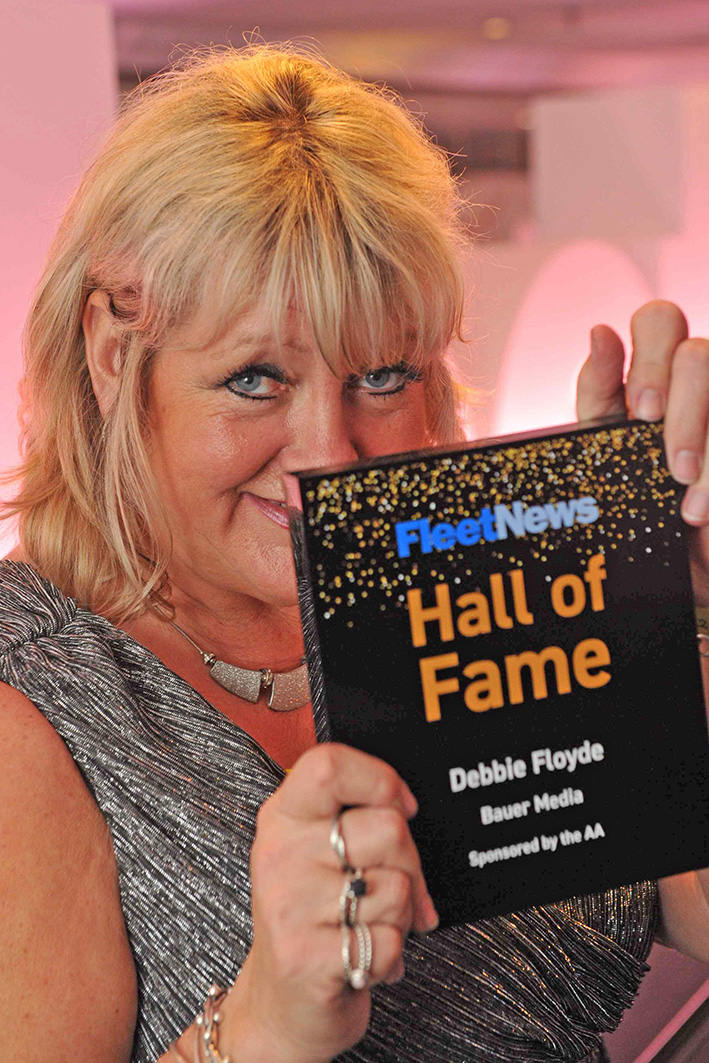
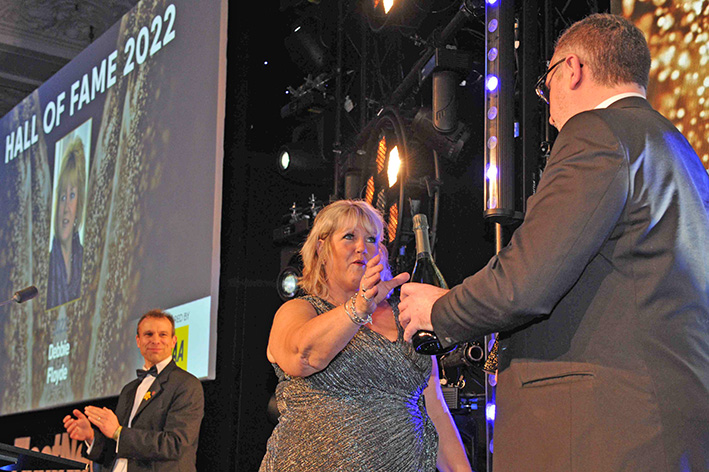

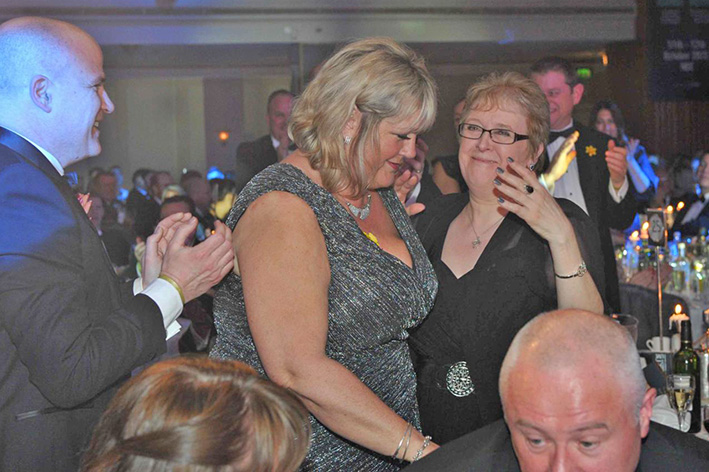
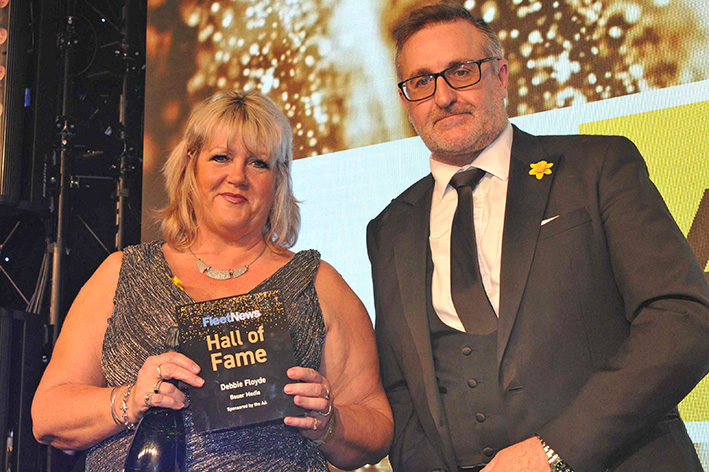




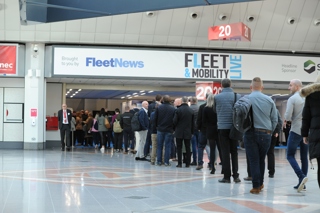
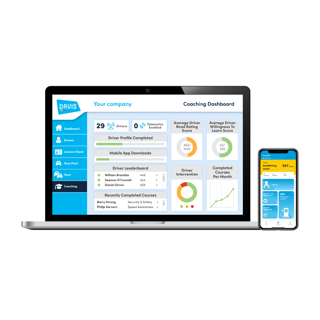
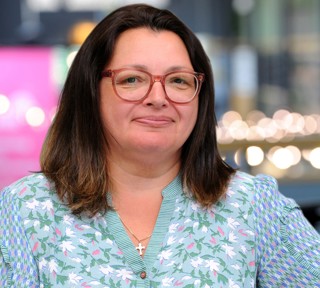











Login to comment
Comments
No comments have been made yet.